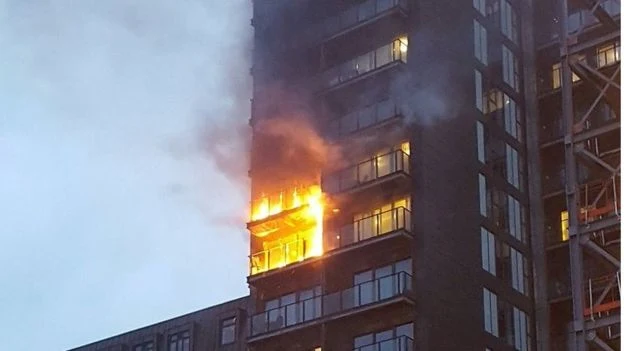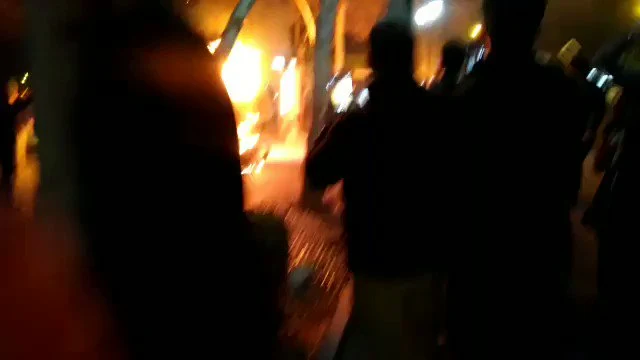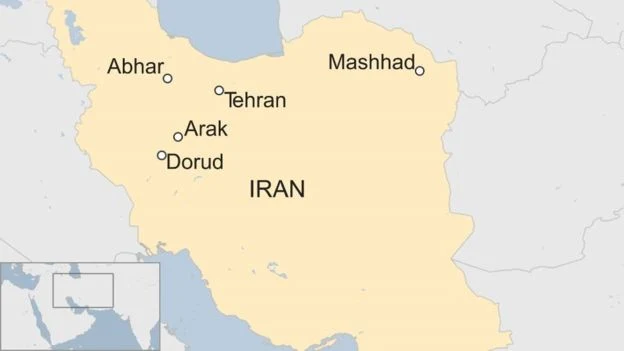One person was taken to hospital after a large fire broke out in a block of flats in Manchester city centre.
The blaze started at about 16:00 GMT on the ninth floor of a 12-storey block in Joiner Street, near the Arndale Centre, before spreading to other floors.
The fire service said four properties were affected and a 23-year-old man was treated for smoke inhalation.
The service said flames had spread to the other floors via wooden balconies and no external cladding was involved.
'Temporary accommodation'
Greater Manchester Fire and Rescue said the eighth floor of the 12-storey building - which adjoins a 20-storey block - suffered smoke damage, while floors 10 and 11 were affected externally.
At the height of the incident 12 fire appliances were at the scene, including aerial appliances.
"A number of people have been evacuated and temporary accommodation will be set up for those who need it," the force said in a statement.
"Crews remain on the scene making sure the building and the area are safe."
The force said the man who was treated for smoke inhalation was taken to hospital by a family member.
Shoppers watched as fire crews dealt with the fire.
Eyewitness Les Gunn said there had been "lots of smoke and debris".
Mark Denby, who had been in a nearby cafe, said: "There were groups of people congregating on street corners looking up at a tower block and I saw a building ablaze... and flames licking up the side of the building.
"The flames kept going up the side of the building - it was pretty horrifying."
'Heroic job'
He said fire engines had arrived "in quick succession" and people applauded the crews for "doing a heroic job".
Andrew Hirst, 36, said cheering could be heard as fire crews put out the blaze.
He said: "You could hear the crowd's cheers as it was going down and you could see the torches from the firemen searching the burned out apartments right next door to the other apartments that were still frighteningly ablaze."
Earlier the fire service tweeted: "The fire had spread to multiple floors but we have things well under control here."It said emergency services, including police and paramedics, had done an "amazing job".
Manchester Central MP Lucy Powell tweeted that the building was "safely evacuated"."Paramedics & others are at the scene to triage all those affected but no serious injuries known."
BBC Sport journalist Saj Chowdhury, who was near the scene, said the fire was "doused quite quickly".Police said there were road closures in Joiner Street and in Church Street, between High Street and Tib Street.




















